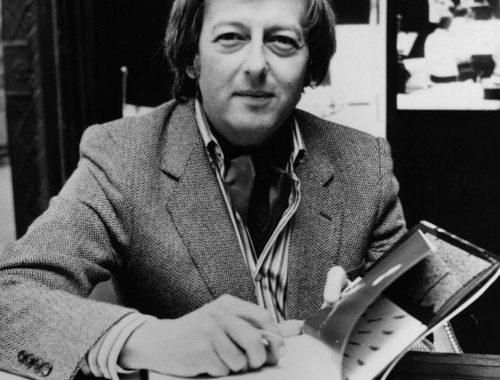WEDNESDAY 1ST SEPTEMBER 2010 PROM 62: GUSTAV MAHLER JUGENDORCHESTER/ BLOMSTEDT
Royal Albert Hall
Like the Matthias Grünewald paintings that inspired it, Paul Hindemith’s Symphony “Mathis der Maler” sounds somehow, and quite miraculously, to be illuminated from within. That aspect of the piece was exceedingly well caught by the mature, well marinated, sound of the Gustav Mahler Jugendorchester where no player is older than 26 – going on 60.
But Hindemith’s beautiful symphony, later to become an inspirational opera, is driven by a deep-seated and well-schooled classicism which only comes off the page if the man at the helm – in this case the venerable, highly experienced, Herbert Blomstedt – can somehow transcend the formalities of the writing – the swathes of fugal writing in the outer movements, for instance – and somehow infuse it with real drama. That wasn’t happening. The tormented “ride to the abyss” in the final movement – “The Temptation of St. Anthony” – held no terrors and only at the point where a dazzling shaft of light in tremolando violins marked out the moment of divine intervention did Blomstedt rise above the methodical and urge his players, quite literally, to see the light. Otherwise, for all the beauty of the playing, “elderly” was the word which best described the conducting.
Another word which sprang to mind and one which is surely a complete no-no in any Bruckner symphony, leave alone the visionary 9th, is “literal”. The opening pages – with horns summoning from the depths of the composer’s soul – cannot sound as precisely and four-squarely articulated as they were here. We should not be aware of the notation at all. But we were. And as each brass-laden tutti duly arrived there was another problem – an impression of sameness, of textures lacking definition and direction. I simply couldn’t hear all the inner brass detail or indeed those moments where trumpets seem to bisect the entire orchestra, most notably at the supremely harrowing climax of the slow movement where we must hear, and didn’t, the dissonance of trumpets crunching against trombones. Blomstedt seemed to have saved all his shock and awe for the scherzo whose pounding reiterations were brutal indeed.
Mahler’s Lieder eines fahrenden Gesellen separated Hindemith from Bruckner with Christian Gerhaher’s “wayfarer” connecting with his audience through the clarity and brightly inflected tone of his storytelling. Occasionally his performance felt closer to speaking than singing – but that, I guess, is what narrative song is all about.


